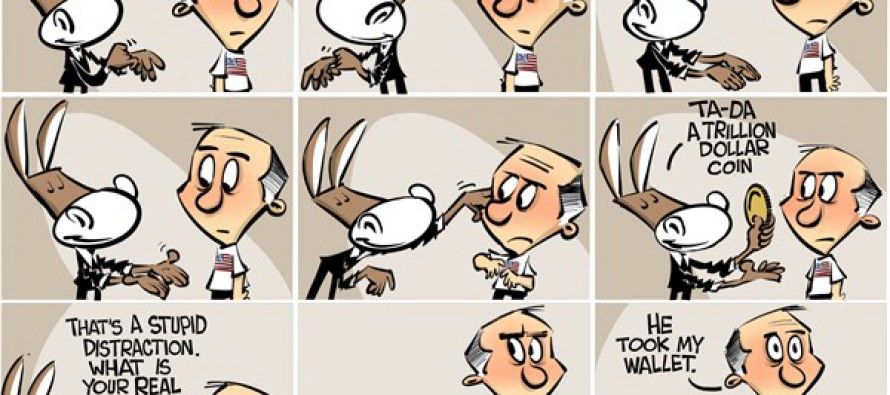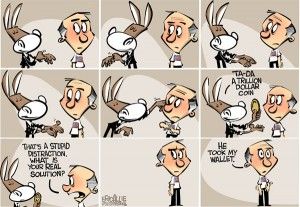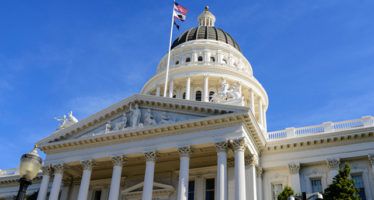GOP lawmakers deliver key votes for tax extension

 Last month, Democratic Gov. Jerry Brown signed into law a $2.3 billion tax extension. The measure, authored by a Central Valley Democrat, passed both houses of the legislature with overwhelmingly Democratic support.
Last month, Democratic Gov. Jerry Brown signed into law a $2.3 billion tax extension. The measure, authored by a Central Valley Democrat, passed both houses of the legislature with overwhelmingly Democratic support.
Yet, the multi-billion dollar tax extension, a Democratic creation, couldn’t have passed the legislature without the help of Republican lawmakers.
Nine Republican legislators, a majority of whom have signed the no-tax pledge, delivered critical votes to ensure that the $2.3 billion tax extension reached Brown’s desk.
Assembly Bill 8 by Assemblyman Henry Perea, D-Fresno, extended the sunset date on various vehicle taxes and fees. The additional revenue will go toward programs for the construction of hydrogen fueling stations and the Carl Moyer Memorial Air Quality Standards Attainment Program, which provides taxpayer-funded grants for businesses to buy new eco-friendly engines and equipment. It also postpones new regulations by the Air Resources Board, a move which is praised by businesses and criticized by environmental groups.
According to the bill analysis, it extends until January 1, 2024:
- $8 increase of the smog abatement fee;
- $0.75 fee increase on tire sales;
- $3 increase of the annual vehicle registration fee;
- $2 surcharge for local air districts on vehicle registrations;
- $5 increase of the fee for special identification plates for construction equipment, farm trailers, cotton trailers, logging vehicles and cemetery equipment;
- $10 and $20 increase for vessel registration.
“This is horrible news for taxpayers because California motorists will now be paying $2.3 billion in additional taxes and charges,” writes Jon Coupal, president of the Howard Jarvis Taxpayers Association. “Adding insult to injury, taxpayers will find their hard earned dollars being used to subsidize programs such as the purchase of all electric cars, like the Tesla that, even with the taxpayer provided discount, can be afforded only by a handful of wealthy individuals.”
GOP votes for AB8
In the State Assembly, Republican Assembly members Katcho Achadjian of San Luis Obispo, Frank Bigelow of Madera and Kristin Olsen of Riverbank voted for AB8, giving Speaker John Perez the 54 votes needed to pass the bill off the Assembly floor. If any of the GOP Assembly members abstained in that floor vote, the bill would have failed. Both Olsen and Achadjian voted for an earlier version of the bill in June.
The vote wasn’t nearly as close in the state Senate. But that didn’t stop Senate Republicans from delivering more votes for the controversial tax extension. Senate GOP Leader Bob Huff was joined by his Republican colleagues Anthony Cannella of Ceres, Bill Emmerson of Redlands, Jean Fuller of Bakersfield and Andy Vidak of Hanford in voting in favor of the multi-billion tax extension in the September 11 floor vote.
Earlier in the year, State Senator Mimi Walters, R-Irvine, voted for a companion measure with nearly identical language, SB11, but changed her vote once AB8 reached the floor in September.
Legislators repeatedly warned of tax hike
Republican legislators who backed the tax extension can’t claim ignorance. Both taxpayer groups and the Legislature’s committee staff pegged the bill as a major tax extension. In January, the Howard Jarvis Taxpayers Association warned that the total bill to taxpayers was $2.3 billion.
An April bill analysis by the Assembly Transportation Committee identified the measure as a tax increase under Proposition 26 that was subject to a two-thirds vote. “Because this bill extends the additional fees on vehicle and boat registrations and a portion of the tire fee, and because these fees are deemed taxes under Proposition 26, this bill requires a two-thirds vote,” the policy committee analysis states.
Similarly, the Senate Republicans' legislative staff cautioned lawmakers about the vote. An internal Senate Republican Caucus bill analysis obtained by CalWatchdog.com found:
“The continuation of billions of dollars of vehicle registration fees and tire taxes for eight years is a hefty price to pay. This bill would result in fee extensions of $8 in smog abatement, $18 for vehicle registrations, $10 on boat registrations, and $0.75 per tire on consumers annually until the year 2024.”
The analysis included an all-caps warning that the bill imposed “VERY MAJOR STATE COSTS AND REVENUE INCREASES.” And it quoted this analysis from the Howard Jarvis Taxpayer Association:
“SB11 has been keyed as a two-thirds vote tax increase. The cumulative impact of these exactions will result in a $2.3 billion tax extension.”
Taxpayer groups following the vote
The tax votes could haunt Republican lawmakers, especially those that have signed the “Taxpayer Protection Pledge.” In April, when CalWatchdog.com first reported on Republican votes for the tax extension, Patrick Gleason, the director of state affairs at Americans for Tax Reform, reprimanded one GOP lawmaker on Twitter:
“Looking forward to letting all of @KatchoAchadjian's constituents know that he broke his commitment to them,” tweeted Gleason, whose organization oversees the “Taxpayer Protection Pledge.”
Coupal adds that, in addition to individual legislators, the vote hurts the GOP brand.
“If Republicans can’t agree with the grassroots movement on tax hikes, what do they stand for at all?” Coupal told CalWatchdog.com earlier this year. “With several Republicans supporting AB8, a multi-billion-dollar tax increase, the Republican brand may have been tarnished.”
Related Articles
Utah coal controversy hits CA Bay Area
Hard up for a sizable market, Utah’s coal producers have inked a big new deal to use Oakland’s deep-water port
We’re all undocumented!
JUNE 24, 2010 By LAURA SUCHESKI California senators and assembly members gathered on the West Steps of the Capitol Wednesday
California “donor state” status a political football
Some Californians have long complained of their state’s status as a so-called “donor state” — one that sends more money




